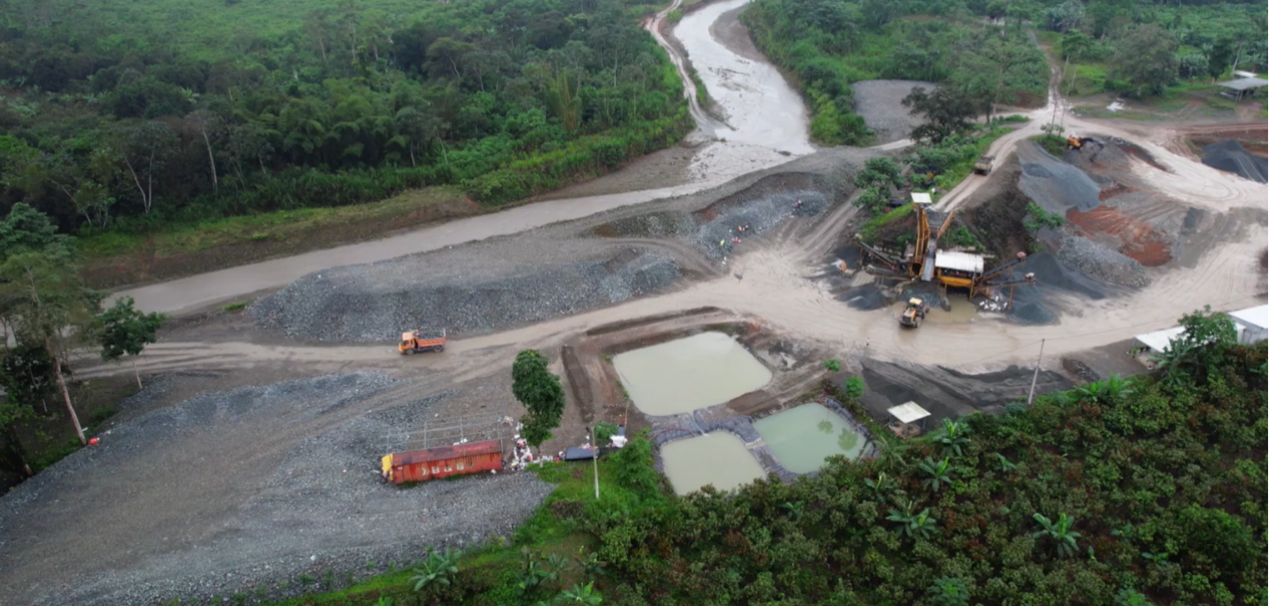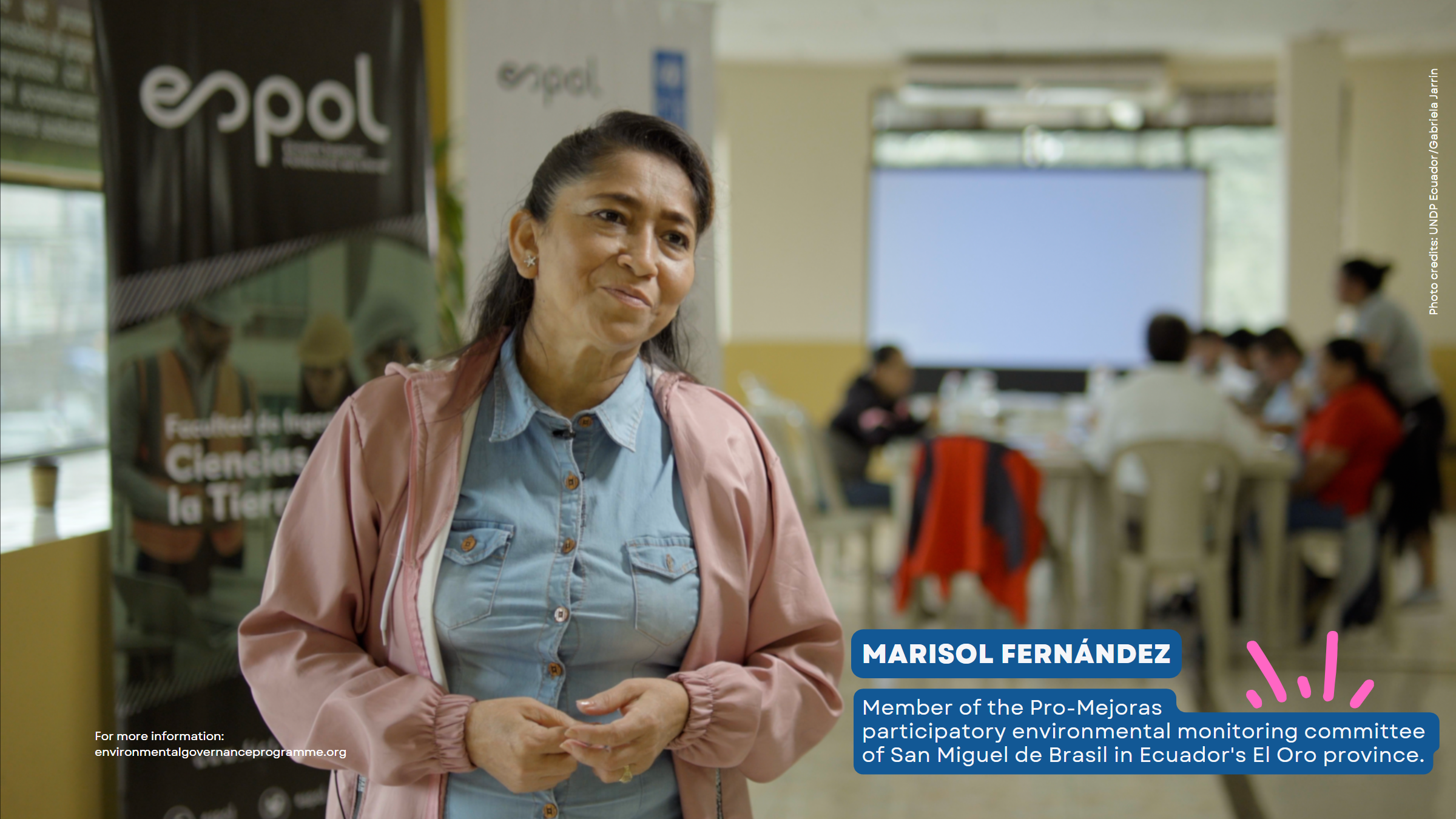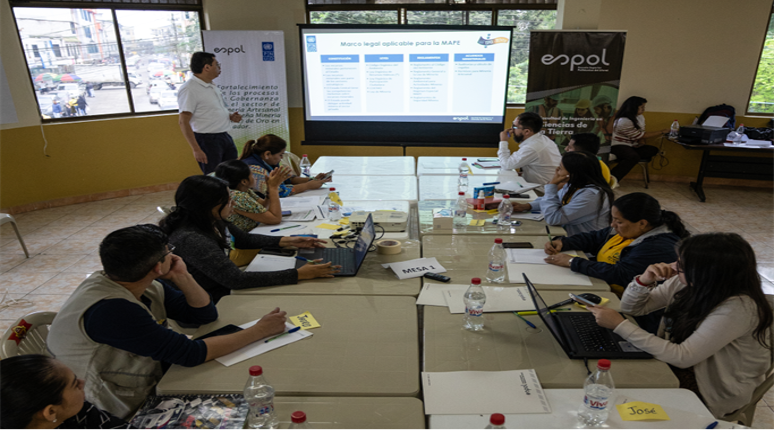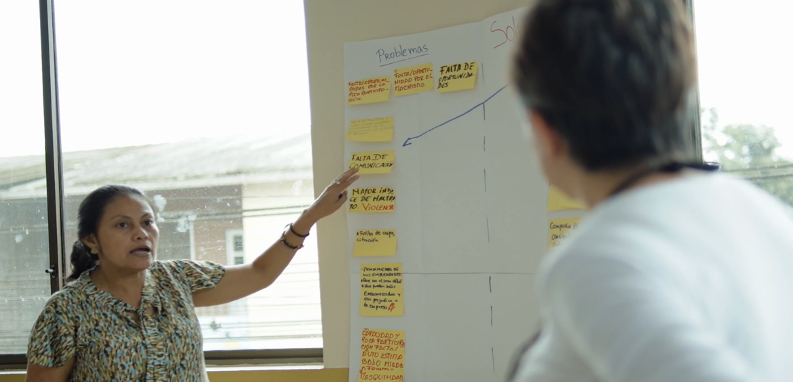CAMILO PONCE ENRÍQUEZ DISTRICT, PROVINCE OF AZUAY, ECUADOR -
Gold mining has existed in Ecuador since the times of the Inca and is deeply entrenched in the life of communities. However, despite abundant reserves, the country has historically lagged behind its Andean neighbours, Peru and Chile, in developing productive large-scale gold mines with adequate environmental and human rights protection.
Artisanal and small-scale gold mining (ASGM) provides the primary source of income and livelihood for approximately 100,000 people in Ecuador. While the ASGM sector accounts for around 85 per cent of the country’s gold exports*, it contributes less than 2 per cent of Ecuador's gross domestic product.
The informality of the ASGM sector jeopardises sustainable development, as it undermines mining efficiency and negatively affects the environment and communities, especially women, youth, and other vulnerable groups. For instance, uncontrolled mercury releases from informal ASGM practices are emerging as a significant threat to the traditional communities that live in harmony with nature and the uniquely rich biodiversity of the Amazon Rainforest region.

Tensions have been exceptionally high in the province of Azuay due to the lack of provisions for Free, Prior and Informed Consent (FPIC), limiting the participation of local communities in the decision-making processes related to mining concessions and the regulation and monitoring of mining activities. This has led to conflict between mining companies and communities that do not receive formal benefits from operations in their territories while suffering the risks and consequences of environmental contamination.
Establishing mining governance mechanisms that facilitate a more participatory and transparent regulation and control of mining activities can help address root causes of socio-environmental conflicts and minimise risks to the communities and nature. Participatory mechanisms can also generate trust by providing an adequate platform for dialogue and communication for all actors involved in the ASGM sector. This model ensures respect for the rights of nature and communities impacted by mining, including traditional and indigenous communities.
Marisol Fernández, 46, is a member of the Pro-Mejoras participatory environmental monitoring committee of San Miguel de Brasil in the El Oro province. She joined the committee in 2019 to learn new tools and approaches to empower her community in identifying environmental issues related to ASGM and establishing a dialogue with local government officials in charge of enforcing ASGM regulations.
“I learn a lot by participating in the committee meetings and sharing my knowledge with my community. I work to get all actors to change their behaviour and attitude regarding gold mining” – Marisol Fernández, Pro-Mejoras committee, El Oro province.

PARTNERSHIPS TO ADDRESS COMPLEX CHALLENGES
With financing from the Swedish International Cooperation Agency (Sida), UNDP Ecuador launched a project on “Strengthening governance processes in the ASGM sector in Ecuador” in 2021. Implemented in partnership with local communities, universities and local, provincial, and central government authorities, this multi-stakeholder alliance aims to promote governance processes that improve the governance of the mining sector in Ecuador. UNDP Ecuador leads the project under the Environmental Governance Programme (EGP), a global initiative with the Swedish Environmental Protection Agency that supports mineral-rich countries in integrating environmental and human rights protection into mining governance.
When the project kicked off in Ecuador, local communities were underrepresented in mining governance processes due to the lack of instruments, policies, and guidelines for meaningful community participation. Remote and more isolated rural communities were particularly impacted by the lack of discussion spaces to exchange experiences and develop their capacities to monitor the mining activities in their territories.
In response, between October and December 2021, the project supported a comprehensive diagnosis and a methodological framework for governance in the gold mining areas of the Bella Rica Cooperative in the province of Azuay. Informed by this diagnosis, UNDP Ecuador joined forces with the Escuela Politécnica del Litoral (ESPOL), a renowned local university, to engage multiple stakeholders and communities in a series of roundtables carried out in 2022. The goal was to implement the methodological framework for governance in pilot communities based on FPIC, broad-based participation and concrete opportunities for inclusive knowledge sharing.

“The roundtables are a space in which people representing different organisations have the opportunity to share their knowledge, learning about their peer’s experiences, taking their differences and similarities into account and being able to build something new together.” - Laura Zurita, Facilitator of the Mining Governance Project, ESPOL.
The main roundtable organised in Ponce Enríquez in October 2022 provided, for the first time, a trusted space for direct dialogue between the ASGM-affected communities, the local governments (Decentralized Autonomous Governments) of the Ponce Enríquez district and authorities from the Ministry of Mines and Energy (MEM) and the Ministry of Environment, Water and Ecological Transition (MAATE).
This inclusive workshop – the first in this region marked by socio-environmental conflict - provided a platform for two-way, mutual, and reciprocal communication, enabling all parties to learn and cultivate new approaches to mining governance.
The partnership with ESPOL facilitated community-level mining governance roundtables and generated impartiality, trust and a catalytic effect with the different interest groups related to ASGM operations.

Furthermore, these multi-stakeholder processes included technical assistance to enable communities to develop and facilitate their roundtables and feedback channels for continuous improvement. UNDP Ecuador and ESPOL also created an inclusive communication and dissemination strategy to increase the participation of local communities, including partnering with local radio stations and working with influential grassroots and faith-based organisations.
A key lesson learned with the implementation of the roundtables is that the informed and consensual participation of various actors is critical to improving the enforcement of existing regulations and addressing recurring gaps that drive conflict in the ASGM sector, especially in remote and hard-to-reach communities.
“The roundtables empowered communities to make their voices heard in mining governance and to play a decisive role in the enforcement of regulations.” - Mario Rodas, Programme Manager, UNDP Ecuador.
NEXT STEPS
The construction of long-term relationships with multiple stakeholders is crucial in shaping mining governance, which involves complex processes and power dynamics that cannot be changed over a single moment of discussion. Therefore, the EGP project will continue to support UNDP Ecuador and national partners working to improve mining governance in Ecuador. The next step, to be implemented in early 2023, is to develop an action plan for the replicability of the governance roundtables across the country.
As Mariuxi Piña, the community leader in the El Oro district, reminds us, “Our expectations are built upon the reality of our territories”. Addressing complex mining governance challenges and the root causes of conflict requires a future-oriented strategy firmly based on the expectations and voices heard from communities impacted by mining, taking into account their ancestral knowledge and unique experience.
LEARN MORE:
- Read the report from the Multi-stakeholder Workshop on Mine Tailings Management in Ecuador (January 23, 2023).
- Read the reports from the 2nd Learning Hub on Artisanal and Small-Scale Mining (April 6, 2022) and the 1st Learning Hub on ASM (September 15, 2021).
- Download the EGP Infographics about ASM Governance (English, Spanish).
- For further information on EGP's partnership with Ecuador, visit the EGP Ecuador and UNDP Ecuador websites.

Please log in or sign up to comment.